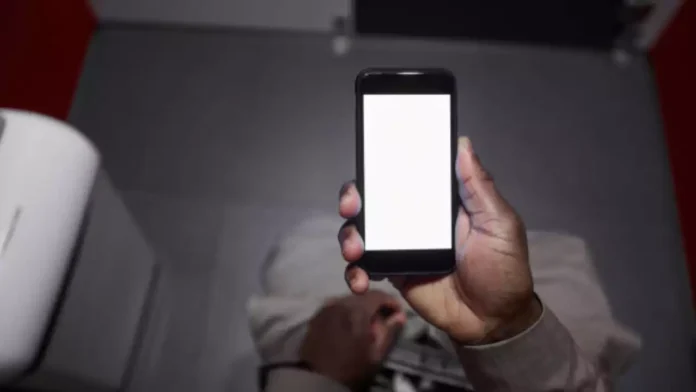How Bringing Your Phone to the Bathroom Can Cause Lifelong Health Problems
Our bathroom is traditionally a sanctuary, a place where one can think freely and gather their thoughts. However, this has significantly changed with the advent of smartphones. Nowadays, the bathroom often hosts not just an individual but also their phone, a habit that poses more health risks than one might initially realize.
Let’s face it—most people take their phones to the bathroom. Whether it’s during that morning trip or those frequent work breaks, the phone has become a ubiquitous companion. The chances are high that you are reading this article from the toilet seat. But what are the risks involved in this common practices
Taking your phone to the bathroom exposes it to a host of harmful bacteria. Bathrooms are notoriously dirty, and using a phone in such an environment means contaminating it with bacteria like E. coli and Salmonella, which can spread and cause illnesses such as stomach bugs.
Toilet plumes, which are microscopic particles that escape when you flush, can settle on your phone, transferring these harmful bacteria. Despite the well-known association between bathrooms and germs, many people still bring their phones along, ignoring the potential health hazards
Beyond the obvious germ factor, using a phone in the bathroom can lead to more serious health issues such as hemorrhoids. Hemorrhoids are swollen veins in and around the anus and lower rectum that can make bowel movements extremely painful.
“Using mobile phones in the washroom has become an increasingly common habit, but it poses significant health risks,” says Dr. Mahesh Gupta, a senior consultant in gastroenterology at Dharamshila Narayana Hospital, New Delhi. “Prolonged sitting on the toilet can lead to excessive pressure on the rectal veins, contributing to hemorrhoids. The body’s natural position for bowel movements is quick and efficient, but distractions from mobile devices often delay the process.”
When you bring your phone to the bathroom, you tend to spend more time on the toilet than necessary. While the actual bowel movement takes only a few minutes, scrolling through social media or watching videos can extend your time on the seat to half an hour or more. This prolonged sitting can cause constipation and lead to hemorrhoids.
Dr. Sukrit Singh Sethi, a consultant in gastroenterology, hepatology, and liver transplantation at Narayana Hospital in Gurugram, explains, “This prolonged sitting can increase pressure on the veins around the rectum and anus. The toilet seat position already places strain on this area, and when you delay finishing your bowel movement by being distracted by your phone, the pressure builds further. Over time, this repeated strain can lead to the development of hemorrhoids.”
Proctologist and anorectal surgeon Dr. Vilas Kedar from Mumbai notes a common habit among his patients suffering from hemorrhoids: spending 30 to 45 minutes in the toilet, often watching videos or playing games on their phones. Hemorrhoids can cause discomfort, pain, itching, and bleeding, and depending on the severity, treatment may involve medication, lifestyle changes, or even surgery.
“Most people who receive treatment for hemorrhoids feel better and can resume their regular activities. However, there might be some long-term effects, especially if they fail to maintain a diet rich in fiber and healthy bowel habits,” says Dr. Vishal Khurana, director of gastroenterology at Metro Hospital, Faridabad.
Health experts advise that one should not sit on the toilet seat for more than 10 minutes. Dr. Sethi suggests, “To maintain healthy bowel habits, avoid distractions like mobile phones that encourage extended toilet time, and focus on responding promptly to natural urges rather than forcing bowel movements. Maintaining good toilet posture, such as sitting with knees slightly elevated, can also aid in efficient bowel movements.
In addition to hemorrhoids, prolonged use of your phone in the bathroom can lead to other issues such as constipation, pelvic floor dysfunction, and back and neck pain. “Neck and back soreness can also be caused by bad posture. You risk overstretching if you are distracted by your phone and ignore your body’s signals,” says Dr. Geeta Shroff, director of the NuBella Center for Women’s Health in New Delhi.
Psychologically, the habit of taking your phone to the bathroom reflects a struggle with managing boredom and the discomfort of being unoccupied. This tendency to avoid confronting one’s thoughts can reinforce unhealthy mental patterns. “The washroom should ideally be a brief, private, and mindful experience, but turning it into a time for digital distractions blurs the boundaries between personal care and screen time, leading to an overstimulated mind,” says Dr. Mahesh Gupta.
Counseling psychologist Absy Sam from Mumbai explains, “Using a phone as a distraction in the washroom can offer temporary relief, and short bursts of usage are generally not harmful. However, if this behavior becomes excessive, it can lead to avoidance, often linked to anxiety or dissociation, especially among trauma survivors.”
In conclusion, while your phone might seem like a harmless companion during bathroom breaks, the reality is that it can have significant negative impacts on your physical and mental health. It’s crucial to be mindful of this habit and try to limit your phone usage in the bathroom to avoid these potential lifelong problems. And remember, taking a newspaper or book isn’t any better—the goal is to minimize time spent on the toilet seat altogether.

